A primary immunodeficiency disorder (PID) is a condition where part of the body’s immune system is missing or doesn’t function properly.
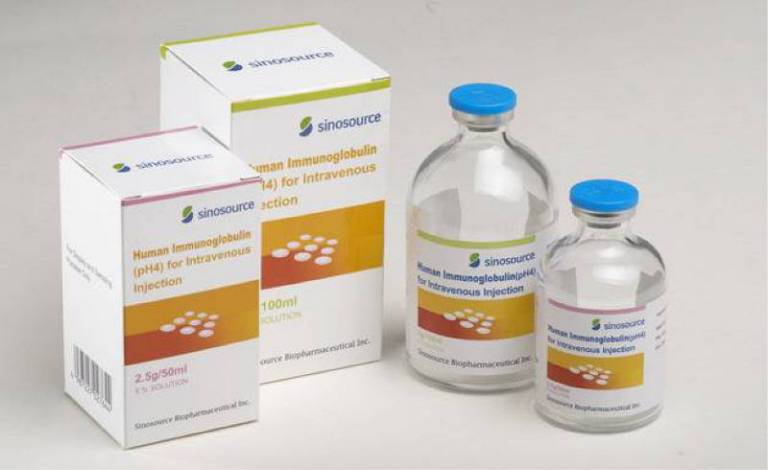
Primary immunodeficiency disorders are caused by inherited genetics defects.
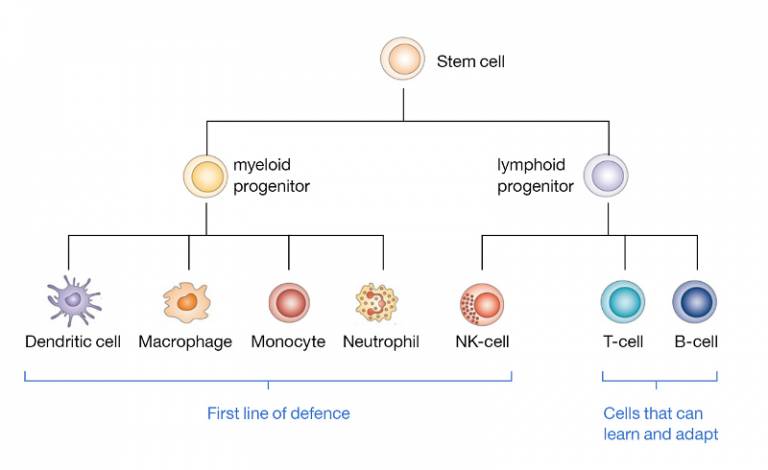
Stem cells have the ability to turn into any type of cell. Those found in your blood can become the different types of white blood cell that make up your immune system.
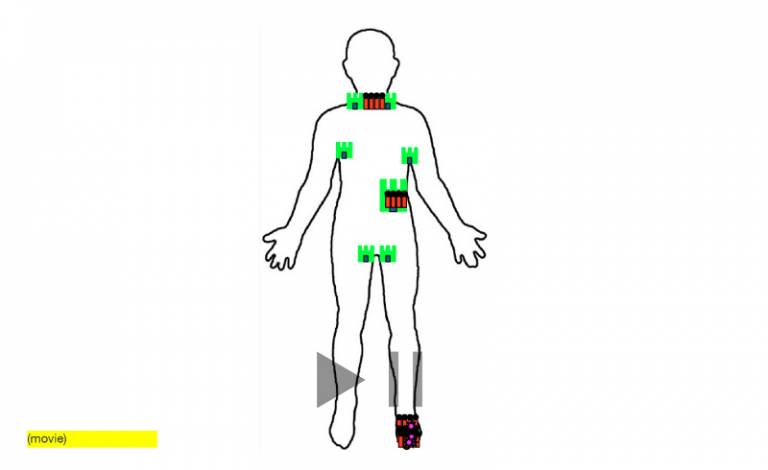
These white blood cells patrol the body, like soldiers, protecting us from infection. They recognise and destroy bacteria and viruses.
Immune cells can communicate with each other to give instructions. This happens in lymph nodes (glands) and our spleen. That's why glands are often swollen when we get an infection.
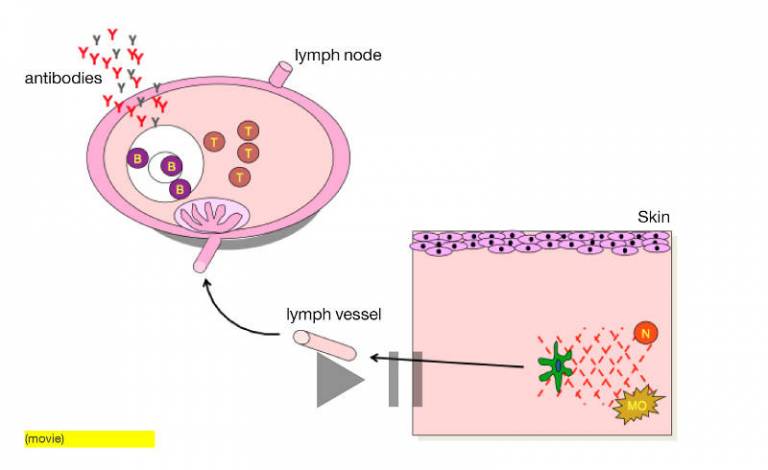
At the site of infection, immune cells in the first line of defence caputre bacteria and viruses. They carry these to lymph nodes and present them to T-cells.
This is a key step in activating T-cells and B-cells to mount an immune response, such as bringing neutralising antibodies to the virus or bacteria.
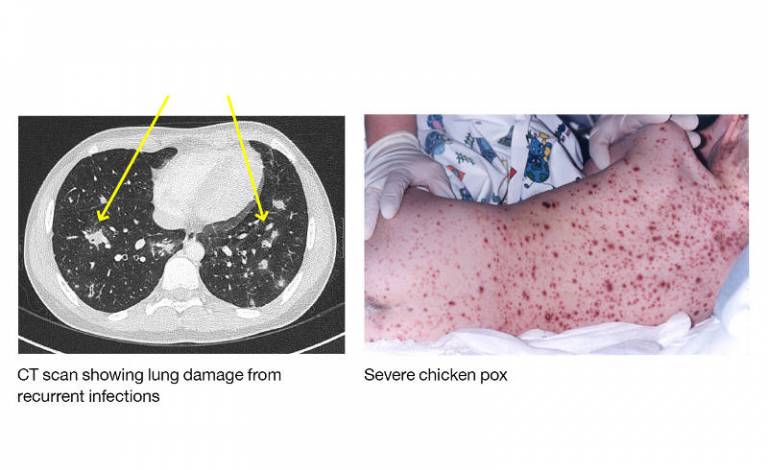
Primary immunodeficiency disorders (PID) are inherited conditions where individual components of the immune system are missing. For example, particular cell types may not develop or function normally. This results in frequent and severe infections. It is important to diagnose PID so that appropriate treatment can be given.

Treatments for PID vary depending on the severity of the immunodeficiency. Many people can be treated with immunoglobulin therapy, where antibodies from a donor are injected into your blood to help fight infection, and preventative antibiotics.
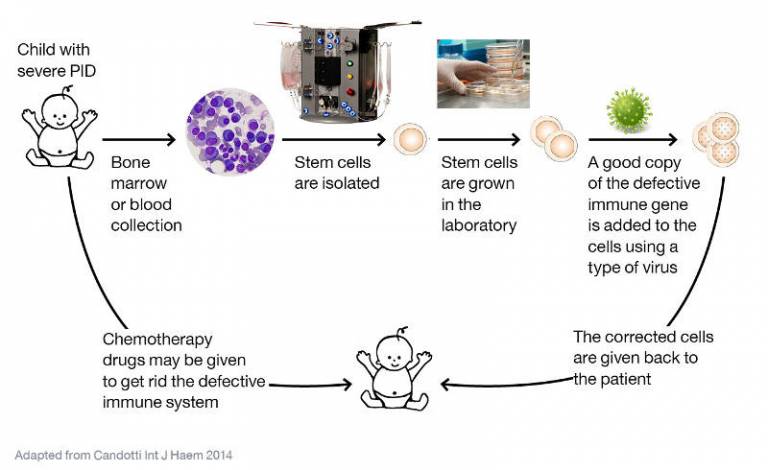
For some more severe PID, the entire immune system can be replaced with a bone marrow (or stem cell) transplant or corrected using gene therapy (as shown above).
 Close
Close

